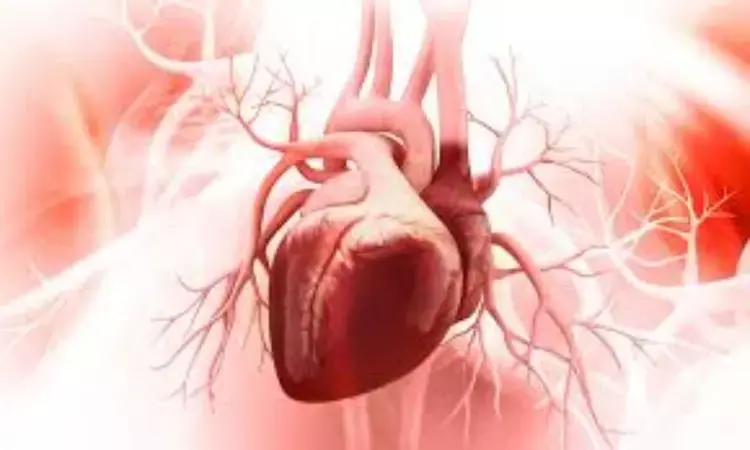- Home
- Medical news & Guidelines
- Anesthesiology
- Cardiology and CTVS
- Critical Care
- Dentistry
- Dermatology
- Diabetes and Endocrinology
- ENT
- Gastroenterology
- Medicine
- Nephrology
- Neurology
- Obstretics-Gynaecology
- Oncology
- Ophthalmology
- Orthopaedics
- Pediatrics-Neonatology
- Psychiatry
- Pulmonology
- Radiology
- Surgery
- Urology
- Laboratory Medicine
- Diet
- Nursing
- Paramedical
- Physiotherapy
- Health news
- Fact Check
- Bone Health Fact Check
- Brain Health Fact Check
- Cancer Related Fact Check
- Child Care Fact Check
- Dental and oral health fact check
- Diabetes and metabolic health fact check
- Diet and Nutrition Fact Check
- Eye and ENT Care Fact Check
- Fitness fact check
- Gut health fact check
- Heart health fact check
- Kidney health fact check
- Medical education fact check
- Men's health fact check
- Respiratory fact check
- Skin and hair care fact check
- Vaccine and Immunization fact check
- Women's health fact check
- AYUSH
- State News
- Andaman and Nicobar Islands
- Andhra Pradesh
- Arunachal Pradesh
- Assam
- Bihar
- Chandigarh
- Chattisgarh
- Dadra and Nagar Haveli
- Daman and Diu
- Delhi
- Goa
- Gujarat
- Haryana
- Himachal Pradesh
- Jammu & Kashmir
- Jharkhand
- Karnataka
- Kerala
- Ladakh
- Lakshadweep
- Madhya Pradesh
- Maharashtra
- Manipur
- Meghalaya
- Mizoram
- Nagaland
- Odisha
- Puducherry
- Punjab
- Rajasthan
- Sikkim
- Tamil Nadu
- Telangana
- Tripura
- Uttar Pradesh
- Uttrakhand
- West Bengal
- Medical Education
- Industry
Empagliflozin improves outcomes in HF with preserved EF irrespective of BP: the EMPEROR-Preserved trial

Germany: Empagliflozin reduces the risk of heart failure (HF) hospitalization or cardiovascular (CV) death in HRpEF (heart failure and preserved ejection fraction) patients. In the EMPEROR-Preserved trial, the researchers aimed to examine if systolic blood pressure (SBP) moderates these effects.
The study findings, published in the European Heart Journal, showed that systolic blood pressure does not change the effect of empagliflozin on risk. The result implies that low blood pressure should not hinder the initiation of Empagliflozin.
Empagliflozin was shown to be safe and effective without SBP, meaningfully moderating the treatment effects of empagliflozin. The analysis of the EMPEROR-Preserved trial found that empagliflozin can be used effectively and safely without BP being a meaningful moderator of the drug benefit.
In EMPEROR-Preserved (empagliflozin outcome trial in patients with chronic heart failure with preserved ejection fraction), Michael Böhm of Saarland University, Homburg, Saarland, Germany, and colleagues studied empagliflozin's effect on SBP and its impact on heart failure outcomes and decline in eGFR (estimated glomerular filtration rate) across baseline levels in heart failure with ejection failure of more than 40%.
For this purpose, the authors evaluated the association between SBP and the treatment effects of empagliflozin. They studied the effect of empagliflozin on cardiovascular death, blood pressure or heart failure hospitalization (primary outcome), rate of decline in eGFR, and total HF hospitalizations. Grouping of 5988 randomized patients was done according to SBP at baseline (110–130 mmHg, n = 2415; <110 mmHg, n = 455; > 130 mmHg, n = 3118).
Based on the study, the authors reported the following findings:
- Following a median follow-up of 26.2 months, the placebo-corrected decline was slight and did not significantly differ across baseline SBP.
- On placebo, the risk of CV death or HF hospitalization was 8.26 at 110–130 mmHg, 8.58 at >130 mmHg, and 11.59 events per 100 patient-years at <110 mmHg.
- There was no evidence that baseline SBP moderated empagliflozin's effect on the risk of HF events.
- Comparing empagliflozin with a placebo showed that SBP did not significantly associate with adverse events such as volume depletion, hypotension, and acute renal failure.
To conclude, empagliflozin reduces the risk of cardiovascular death, HF hospitalization, and eGFR decline independent of baseline SBP. Empagliflozin treatment is not accompanied by significant volume depletion or symptomatic hypotension concerns but even reduces incident heart failure. The marginal changes of placebo-corrected SBP on treatment are not accountable for risk reduction with empagliflozin supported by the landmark analysis that explored time-updated SBP on empagliflozin effects.
"A low systolic blood pressure should not be a hindrance with treatment initiation with empagliflozin in HF with LVEF >40%," the researchers wrote.
Reference:
Michael Böhm, Stefan Anker, Felix Mahfoud, Lucas Lauder, Gerasimos Filippatos, João Pedro Ferreira, Stuart J Pocock, Martina Brueckmann, Ilias Saloustros, Elke Schüler, Christoph Wanner, Faiez Zannad, Milton Packer, Javed Butler, the EMPEROR-Preserved Trial Committees and Investigators, Empagliflozin, irrespective of blood pressure, improve outcomes in heart failure with preserved ejection fraction: the EMPEROR-Preserved trial, European Heart Journal, 2022;, ehac693, https://doi.org/10.1093/eurheartj/ehac693.
Dr Kamal Kant Kohli-MBBS, DTCD- a chest specialist with more than 30 years of practice and a flair for writing clinical articles, Dr Kamal Kant Kohli joined Medical Dialogues as a Chief Editor of Medical News. Besides writing articles, as an editor, he proofreads and verifies all the medical content published on Medical Dialogues including those coming from journals, studies,medical conferences,guidelines etc. Email: drkohli@medicaldialogues.in. Contact no. 011-43720751


